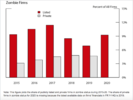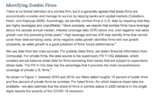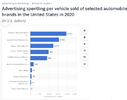JohnDe
La dolce vita
- Joined
- 11 March 2020
- Posts
- 4,474
- Reactions
- 6,537
More fuel but what will burn, China's or the US's economy, world economies, inflation ?
Interesting times we live in, there is always opportunity. Anyone care to offer their thoughts on which industry's to keep an eye on? I'm not convinced that inflation is going to cause an issue just yet, but one just in case I am looking at industries that are not affected by it.
 www.theaustralian.com.au
www.theaustralian.com.au
Interesting times we live in, there is always opportunity. Anyone care to offer their thoughts on which industry's to keep an eye on? I'm not convinced that inflation is going to cause an issue just yet, but one just in case I am looking at industries that are not affected by it.
When Chinese President Xi Jinping addressed the World Economic Forum this week he could not have realised that US bond holders were about to sell down and push up interest rates. In addition, he did not know that Microsoft was planning a takeover that would have long term implications for China and world technology.
The US bond sell down raised yields on the US 10 year bond to a two year high and triggered a Wall Street fall that naturally hits Australian shares.
Xi not only urged the US not to lift official interest rates in that speech but suddenly a new China trading line emerged. If it is maintained Australia stands to benefit.
Accordingly, it is important to understand the dilemma facing the Chinese President and isolate the forces that are causing his new approach and why the US bond sell down and Microsoft strategy form part of the matrix.
China is not only being hit by the Omicron variant of Covid but its property development mess is much deeper than the well-publicised problems of Evergrande. A lot more developers are on the brink of collapse and their difficulties compound the problems of many of the local Chinese governments and the banking system. A very large of proportion of Chinese wealth is in property.
This comes at a time when the communist party is restricting Chinese freedoms, discouraging the display of wealth and making fundamental changes to the education system while curbing the role of the gaming industry which has been propelling Chinese technology.
Even in a totalitarian regime like China to implement such fundamental changes requires community prosperity as the trade-off. The alternative to delivering prosperity is to rally national unity via military action which is China’s case would be the invasion of Taiwan.
That may still happen but at least for the moment China has reverted to the strategy that it has always embraced when threatened with an economic reverse – it stimulates its economy with lots of spending on infrastructure and rescues of troubled enterprises.
But it will also need the US – its major trading market – to continue its strong demand for Chinese products. So, China is now preaching a free world trading system and urging the US not to curb its economy at this time. China has reduced its interest rates and is urging the US Federal Reserve not to lift official rates.
The thrust of these remarks sit oddly in the wake of its clamps on imports from Australia. China will clearly need our minerals and there is just a chance, and I am not making a forecast, that if we are able to keep our mouth shut for a while then China will relax some of the bans.
In this context, China will be concerned at the rise in the US bond interest rates because they impact the world. On Tuesday US time, the US 10 year bond rate rose to a two year high of 1.87 per cent. A year ago the rate was around one per cent having risen sharply in the previous six months.
The excess liquidity in the US has so far muted the share market impact of such a big rise in US bond rates but there is now clear deep nervousness in the share market.
Bond holders in the US are seeing inflation at between six and eight per cent or three to four times the bond rate so are selling their bonds and forcing up the yields. At the same time the US Federal Reserve has reduced its bond purchases and forecasts further reductions bond buying. Any country that stimulates its economy at a time when inflation is rising sharply is taking an enormous risk.
Nevertheless, China needs a strong US economy to boost its exports and help it through this difficult economic time so Xi wants a lid on official rates so American demand for Chinese goods remains strong. It also wants the US to reduce the protection mechanisms that were introduced in the Trump era. If America had a strong President this would represent an unprecedented opportunity.
The practical outcome is that China is now stimulating and that will maintain strong demand for our iron ore coal gas and agricultural products. Markets will need to balance that boost with the turmoil being created by the US bond market and the impact of Omicron on the trading of companies not just in Australia but around the world.
Our high vaccination rates give us the opportunity to contain those impacts.
But then comes the wild card – the Microsoft plan to buy video game company Activision Blizzard for nearly $US70bn ($A97.43bn). Microsoft has seen how China has used its gaming technology to advance it‘s technology in the internet and artificial intelligence. In addition the gaming boom has been greatly boosted in the pandemic and Microsoft believes that video games will become an increasingly central part of people’s digital lives.
Activision franchises include the massive Call of Duty and Candy Crush. The company has encountered employee revolt over accusations of sexual harassment and discrimination.
But Microsoft has a deeper agenda. It wants to be a bigger player in the metraverse world of virtual and augmented reality. Its early days but it look like the internet is headed in that direction and Microsoft needs to be a player and will gain extra knowledge via gaming technology.
China and Xi’s concern about the impact on gaming on the population may cause China to fall behind in this new development.
ROBERT GOTTLIEBSEN BUSINESS COLUMNIST








